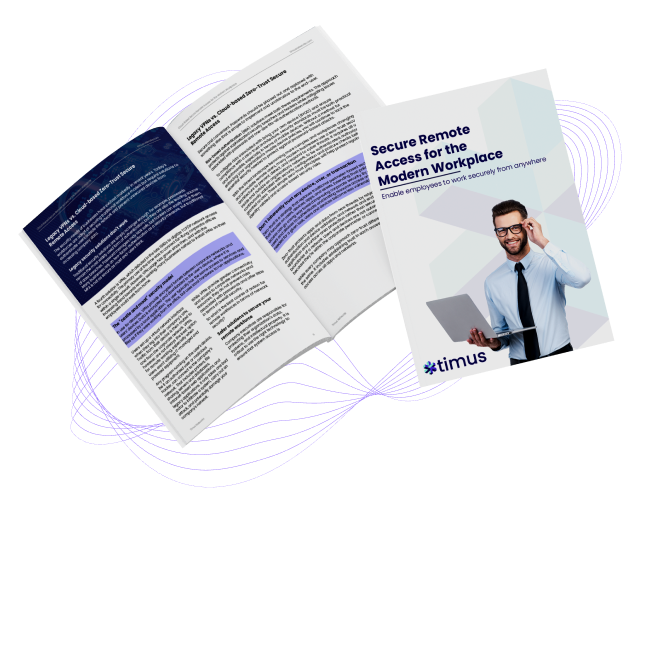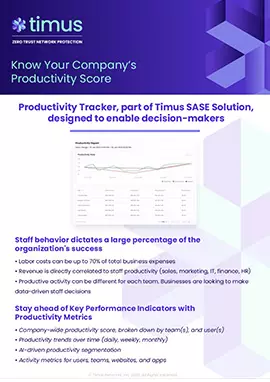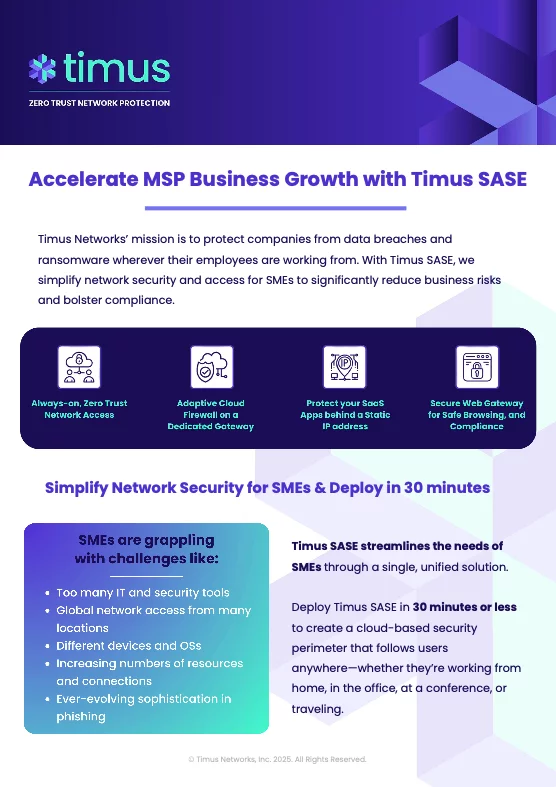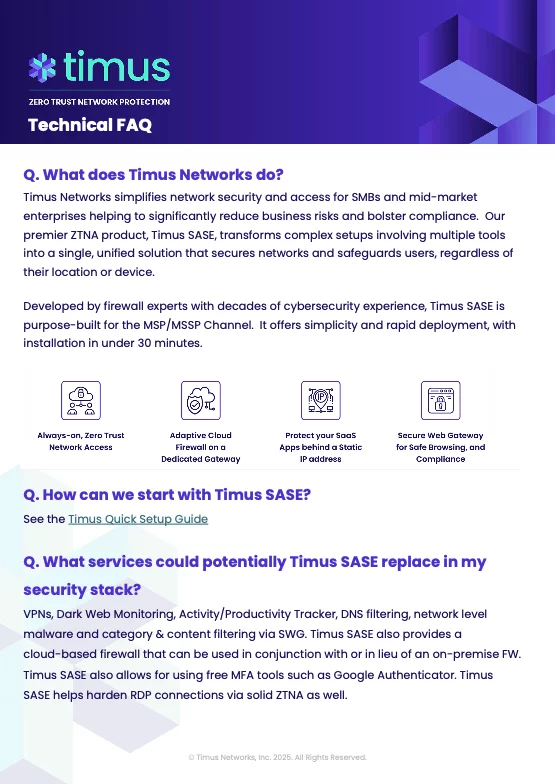Secure Remote Access for the Modern Workplace
Secure Remote Access enables employees to work securely from anywhere.

With this whitepaper, you will:
- Learn why secure remote working is important today.
- Understand the differences between legacy VPNs and cloud-based ZTNAs.
- Learn why secure remote working is important today.



